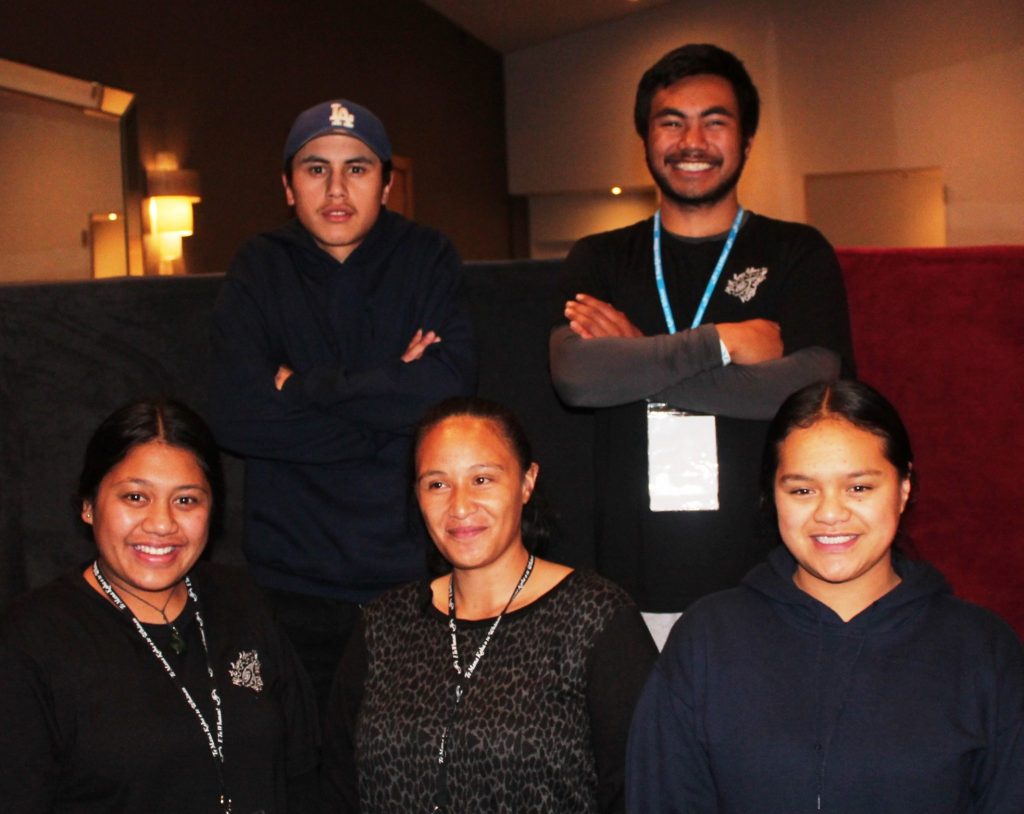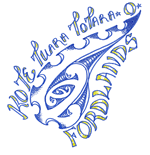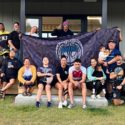Tia Clarke is the Youth Coordinator and Project Manager at Ko Te Tuara Totara o Fordlands in Rotorua. Also known as the Fordlands Community Centre, it’s an organisation with a decade long record of energetic and proactive work with whānau in need of support.

Left to right (top) Bailey Marshall, Amos Taumanu, (bottom) Jav Roimata, Tia Clarke, Harmony Sylva
Tia stumbled on the E Tū Whānau kauapapa during a chance meeting with its kaiwhakahaere, Ann Dysart. Ann invited her and fellow members of the Fordlands Rangatahi Collective to attend the E Tū Whānau PALMS Rangatahi Symposium, held in their home town at the end of July.
The experience, she says, opened her eyes.
“We were there with young people from all kinds of backgrounds and communities. Just being there, making connections and talking with people opened my eyes to the issues different communities face and the solutions many had found. We shared so much. It was fantastic!”
Teina and tuakana
The Fordlands Rangatahi Collective is a 20-strong group of volunteers aged 16 and over who work in a teina-tuakana relationship with other young people in their community and gain important employment skills at the same time. Together they run a free lunch scheme and coach lunchtime sporting activities at their local school, Sunset Primary.
Those who are not attending school themselves come into Fordlands Community Centre three days a week to prepare the lunches. In return, the school gives them an opportunity to develop their leadership and mentoring skills by supervising the sporting activities. Tia, their only paid worker, co-ordinates everything.
“We supervise a variety of sports like, soccer, touch or rugby, and pick two to focus on each month. We also have relay sack races on Wednesdays and, if the weather is a bit wet, we’ll go into the school hall and play traditional Māori games.”
The ‘win-win arrangement’ is part of the community centre’s strategy of providing whānau with alternative educational opportunities and career pathways. It’s already paying off.
Making a difference

Ko Te Tuara Totara o Fordlands Inc. “Strengthening Backbone of Fordlands”
Stormy Storney is the Fordlands Community Centre Office manager. She is also responsible for its kura programme which supports adults to as well as young people.
“We help whānau take advantage of any educational opportunities that will help them find employment. It’s hard to get work around here but this programme is making a difference.”
Just one month ago, for example, three members of the rangatahi collective left Fordlands to take up job offers in Auckland.
“They were confident enough to leave their comfort zone, the hometown that they thought they’d be in for the rest of their lives, and step out into the big wide world,” says Stormy.
Sense of purpose
“After all, that’s why we created the rangatahi collective in the first place. We wanted our rangatahi to develop a better sense of purpose in life. We want them to know that there is a lot of exciting things out there for them, that we are there to support them and remind them that they’re not alone.”
Stormy and Tia know only too well what they’re up against.
“Yeah,” says Tia, “Our community has its problems – low incomes, unemployment, domestic violence etc – but we face them and work to address them. When I talked to others at the PALMS Symposium, I realised that our community isn’t the only one suffering.”
She’s quick to acknowledge how much she learnt at the PALMS Symposium but is equally confident that her ideas and the vision she and her colleagues in the Fordlands Rangatahi Collective have for a healthy future are equally valid.
“My thing is that if, for whatever reason, adults can’t help their youth, then why not start with the youth themselves. Unfortunately, for some adults it might be too late to change, but it’s never too late for our kids.
“If we as young people can show leadership, if we can make these positive changes, then the next generation will be better people and know that they have a better future.”



